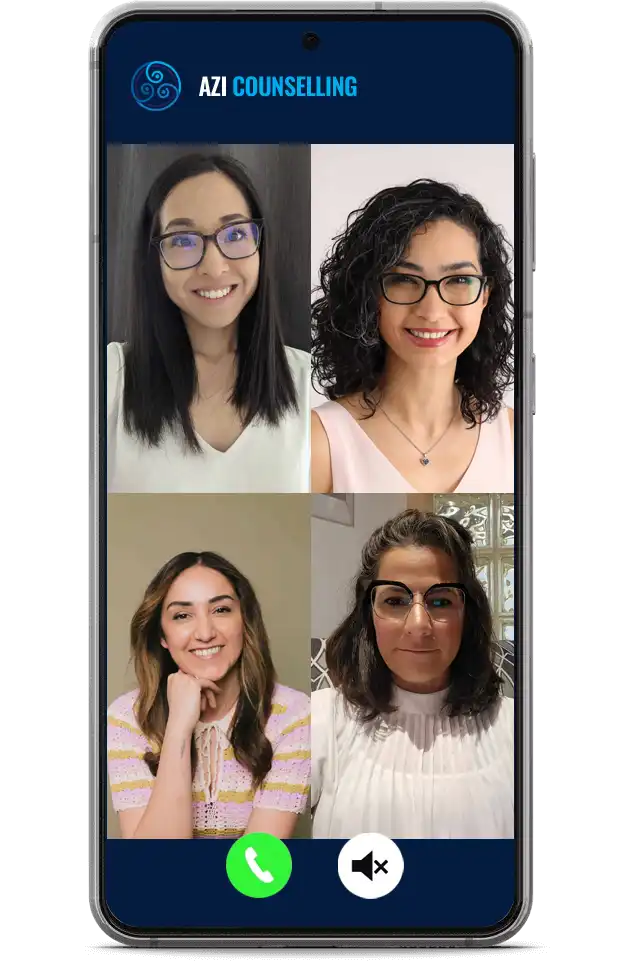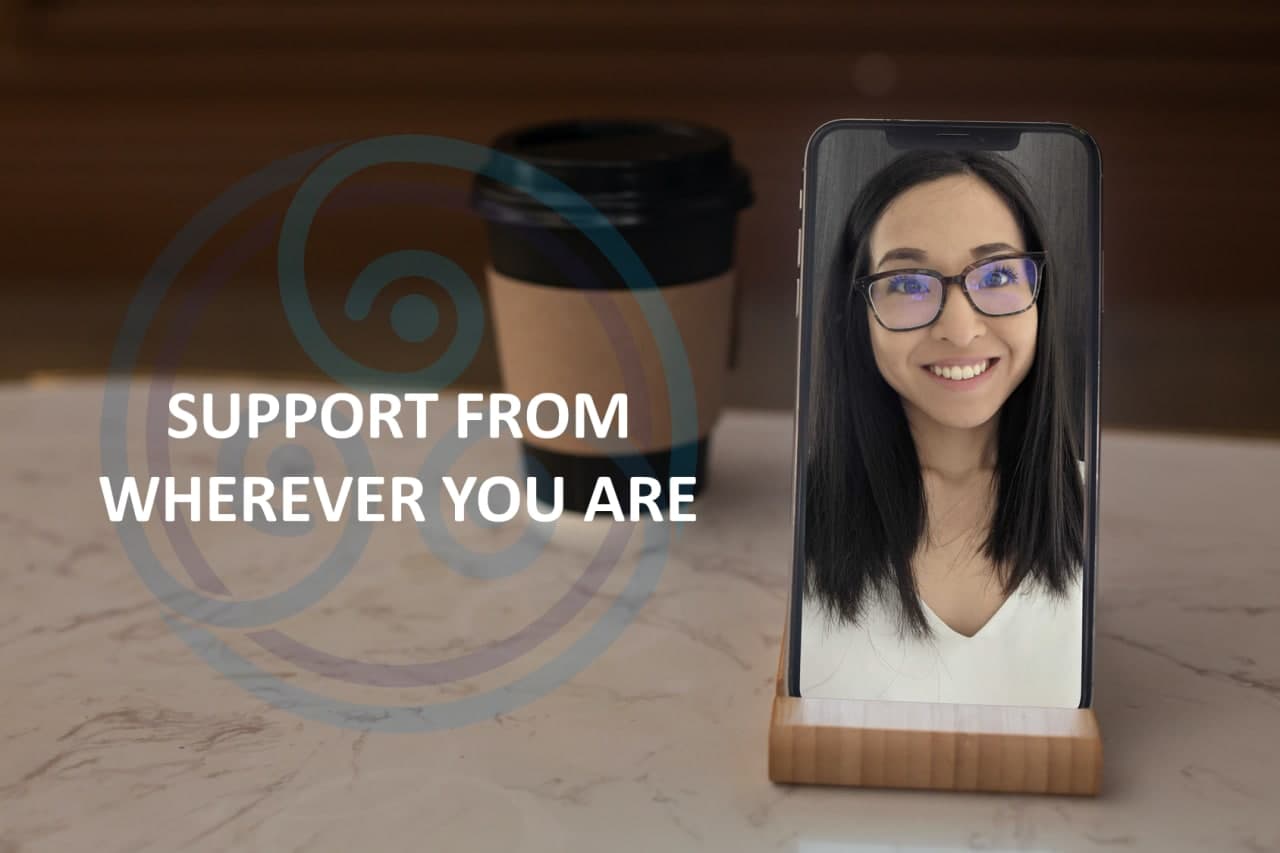
Online counselling for anxiety and stress
With years of experience and training in the field of mental health, our counsellors can help you learn about the roots of your anxiety and gain tools to cope with anxiety and stress. Book your free consultation today to learn more about how we can help you.
What makes us different?
We pride ourselves in our professional team with years of advanced training and in providing high-quality therapy services to make lasting changes for our clients.
Our therapists are trained in different modalities to ensure we can address the different dimensions of your anxiety. They are trained in CBT and mindfulness approaches along with approaches that focus more on transforming the emotions that underlie anxiety and the physical symptoms of anxiety.

why Online counselling for anxiety and stress?

Online counselling is as effective as in-person counselling and has the following advantages:
Convenient and Accessible
How anxiety feels
Anxiety can mean different things for different people. The symptoms of anxiety, the journey to healing and the tools that hep each person are unique. That is why it is important to seek the help of a trained anxiety therapist.
Some clients experience anxiety mostly in their bodies through symptoms such as:
- Palpitations (heart feeling like it is racing in your chest)
- Hyperventilating (breathing a lot and very quickly)
- Sweating
- Nausea (feeling sick)
- Pins and needles
- Feeling light-headed or dizzy
- Legs feeling weak/wobbly


Anxiety and Stress can also cause other symptoms, such as:
- Difficulty sleeping (insomnia)
- Feeling restless
- Reduced sex drive
- Headaches, backaches and other aches and pains
- Overtthinking and rumination
- Obsessive Complusive tendencies (OCD),
- Difficulty concentrating
- Procrastination and excessive worrying
Take the first step today
Frequently Asked Questions (FAQ)
Is Telehealth for you?
services, Telehealth is an alternative for your sessions. Call or email today for a free consultation to find out if Telehealth is appropriate for you.
Are your sessions covered by benefits?
Registered Clinical Counsellors (RCC), Certified Canadian Counsellor (CCC) are usually covered by many extended health benefit plans, however, this depends on your company’s specific plan. You could speak to your human resources
department or consult your benefit booklet, which contains the specifics of your company’s health plan to determine what kind of coverage you have. Ask if your insurance covers Registered Clinical Counsellor (RCC), Certified Canadian Counsellor (CCC).
We do not accept payment directly from the insurance company. We can act on your behalf though, and provide your insurance company with all the necessary information to ensure that you receive the coverage to which you are entitled to quickly. With electronic claims processing, you will often receive payment from the insurance company within three to five business days. Most insurance companies allow for direct deposit as well, further expediting your
reimbursement.
If your plan does not cover RCC, CCC, but covers Registered Psychologist or Social Workers, you can make a request to your employer and insurance company that they adjust your plan.
What are the benefits of virtual counselling?
Accessibility
Web counselling is easily accessible to all those who wish to use it. Online therapy overcomes barriers that may preclude others from seeking therapy. For example, individuals residing in rural or remote areas where there are no counselling services can benefit from the accessibility of online counselling.
Those that are physically disabled or unable to leave their home can also easily access such services with little inconvenience. Those that have visual and hearing impairments can also benefit from such services. Web counselling has also shown to be effective in encouraging children and teenagers to receive therapy as they seem to be more comfortable with using the internet.
Convenience
Online therapy is convenient. Both the therapist and the client have the convenience of corresponding with each other at a range of variant times. This style of therapy can take away the hassle of scheduling and setting appointments more common in traditional settings. This also creates an opportunity for the therapist to extend their services to more clients as appointments can be potentially scheduled over 24 hours and reach a larger geographical region.
For those individuals who are ambivalent about therapy or who may be uncomfortable with traditional models of therapy, may find online counselling more suitable whereby it has been found that online therapy is preferred by those who are uncomfortable with talking face to face with someone about their problems
Why would I want to talk to a therapist?
Mental Disorders: People struggling with depression, anxiety, phobias, addiction, PTSD, ADHD, etc. may seek therapy to treat the problem and/or learn healthy ways to cope. In many cases, disorders are treated medically in conjunction with therapy
Distress: One-way therapists determine the severity of an issue is to look at how much distress it causes the individual. For example, one young woman may be distressed about leaving home for college, while another is delighted. If the level of distress is prohibiting her ability to sleep, eat, study, socialize, or enjoy life, therapy may be a healthy option.
Support/Coping: Loss is a common reason for people to seek therapy. Therapy can provide a safe, supportive place for people to talk about grief, adjustment to physical illness, the end of a relationship or job, abuse issues, or any change in life circumstances that cause distress. Therapists help clients learn coping skills to get them through these times.
Communication: Many people come to therapy looking for help with their relationships. Individual, couples, or family therapy can address a common source of distress: poor communication and difficulty resolving conflicts. Some therapists are highly skilled at helping people communicate their needs and feelings constructively.
Self-Exploration: Some people come to therapy to gain a deeper understanding of self. They want to know why they do what they do, why they feel what they feel, and determine how much control they have over those areas. Sometimes this exploration is used to determine career, relationship, and personal goals.
About Us
Azi Counselling & Associates is a practice centered around client connection. It’s about starting a journey with someone you trust to begin healing from the inside out and having the coping skills to move forward.
Deciding to allow someone into your world is not something we take lightly, we believe in a supportive approach to help you live a more meaningful life.